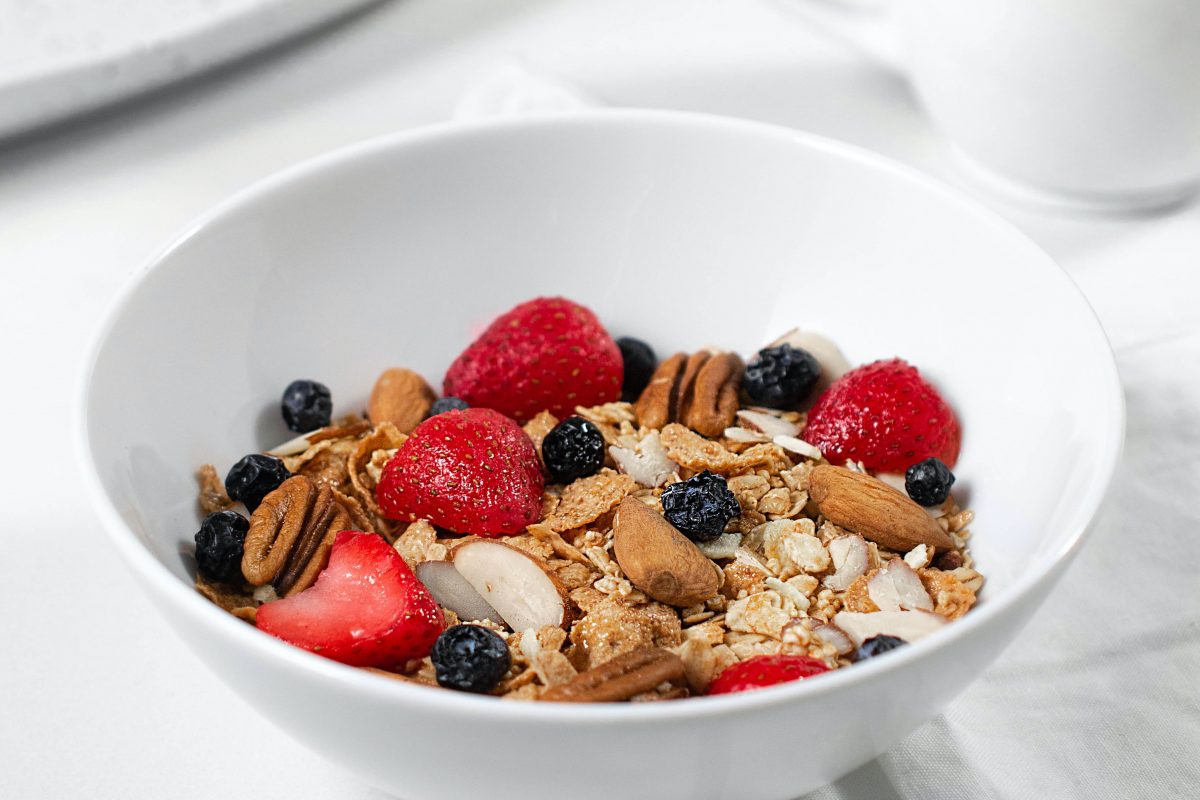
The Most Important Meal of the Day or a Big Fat Lie?
Al Sears, MD – It’s not natural to eat first thing in the morning. Yet we’ve been fed this lie for years being told it’s the most important meal of the day.
Our ancestors didn’t wake up and pour a bowl of cereal for breakfast.
They had to go out and kill their meal first. In their native environment, they performed at their peak. Their hearts and lungs were powerful, and their brains were sharp.
The FDA has gone to great lengths to scare us into drastically changing the way we instinctively ate, saying their way is healthy. And, as a country we’ve complied.
Today, our consumption of these foods is way down:
- Fat by 40%
- Red meat by 54%
- Whole milk a whopping 90%
- Butter by 85%
- Saturated fat by 50%
Yet our consumption of vegetables, fruit, grains and polyunsaturated fats is up dramatically.
They’ve got it all wrong and as a result we’re fatter, sicker and weaker than ever before.
Today, two out of three people are overweight or obese, and diabetes has increased by a catastrophic 900%.
Unfortunately, we don’t live in this native environment anymore. But we can return to the native wisdom of our ancestors including plenty of healthy fats and the right kinds of proteins in our diet, as well as eating few carbs.
But just as important as what you eat is when you eat. It’s not normal for humans to eat all day long — and it’s not healthy. Our ancestors went long periods without eating. But during these hard times, they thrived. And in the process, fasting became hardwired into our DNA.
Luckily, today we don’t have to go days without eating.
By introducing “lean periods” of intermittent fasting into your day, you help restore your body to its native health.1,2,3,4
Doing so can… reduce insulin resistance, lower blood pressure to reduce the risk of heart disease, lower risk for cancer, boost immune system, help with weight loss and reduce inflammation — the root cause of today’s chronic diseases.
Eat Like Your Ancestors
I recommend you start simply having an 8-hour eating window every day, followed by a 16-hour fast.
Here’s how it works:
You start your day with a 10 a.m. breakfast. Then eat lunch at your regular time. Finish dinner by 6 p.m. You eat nothing else from 6 p.m. until 10 a.m. the next day.
When your body gets used to the 16-hour fast, you can move up to the 24-hour mark. You can practice one-day fasts as often as every two weeks.
Remember: What you eat is as important as when you eat. Keep these three things in mind:
- Fats make up 70% of calories. Fat is so important that if your body senses you’re starving, it does everything it can to preserve your fat stores. Healthy fats include omega-3s, MCT oil and saturated fat.
- Go low-carb. Carbohydrates should never make up more than 5% or 10% of your total calories. The easiest way to start is by avoiding processed foods, grains, rice, pasta legumes and starchy vegetables.
- Choose the right kind of protein. The protein you eat is only as healthy as the animal it comes from… I suggest eating grass-fed beef and wild-caught fish. Choose eggs from pastured chicken. Nuts and seeds such as almonds, peanuts, cashews, sunflower and pumpkin seeds also have plenty of protein.
To Your Good Health,

Al Sears, MD, CNS
1. Cheng C, et al. “Prolonged fasting reduces IGF-1/PKA to promote hematopoietic-stem-cell-based regeneration. Cell Stem Cell. 2014;14(6):810-823.
2. Malinowsk B, et al. “Intermittent fasting in cardiovascular disorders—an overview.” Nutrients. 2019;11(3):673.
3. Lui Y, et al. “SIRT3 mediates hippocampal synaptic adaptations to intermittent fasting and ameliorates deficits in APP mutant mice.” Nat Commun. 2019;10(1):1886.
4. Cabo R and Mattson M. “Effects of intermittent fasting on health, aging, and disease.” N Engl J Med.2019;381(26):2541-2551.
To read the original article click here.
For more articles from Al Sears, MD click here.






